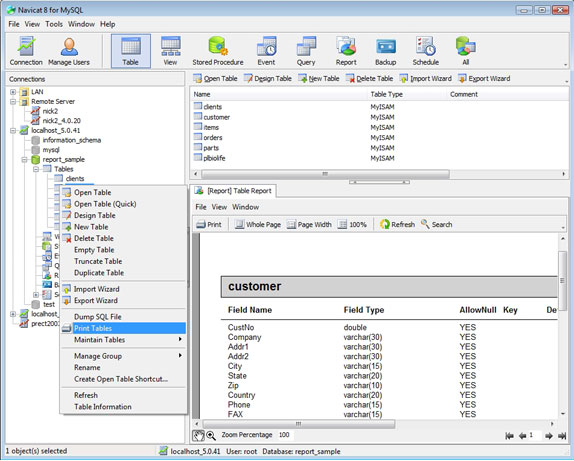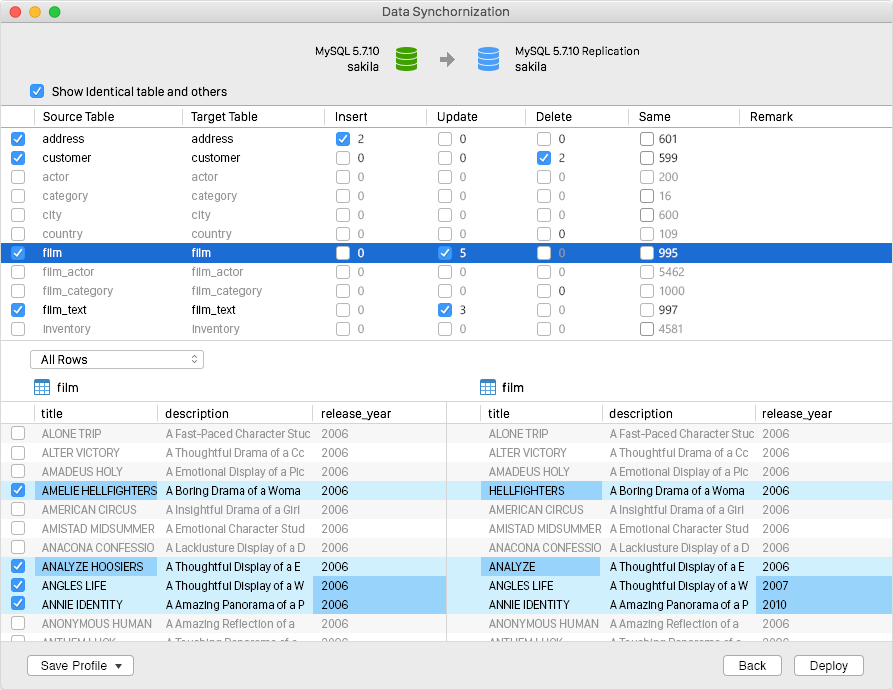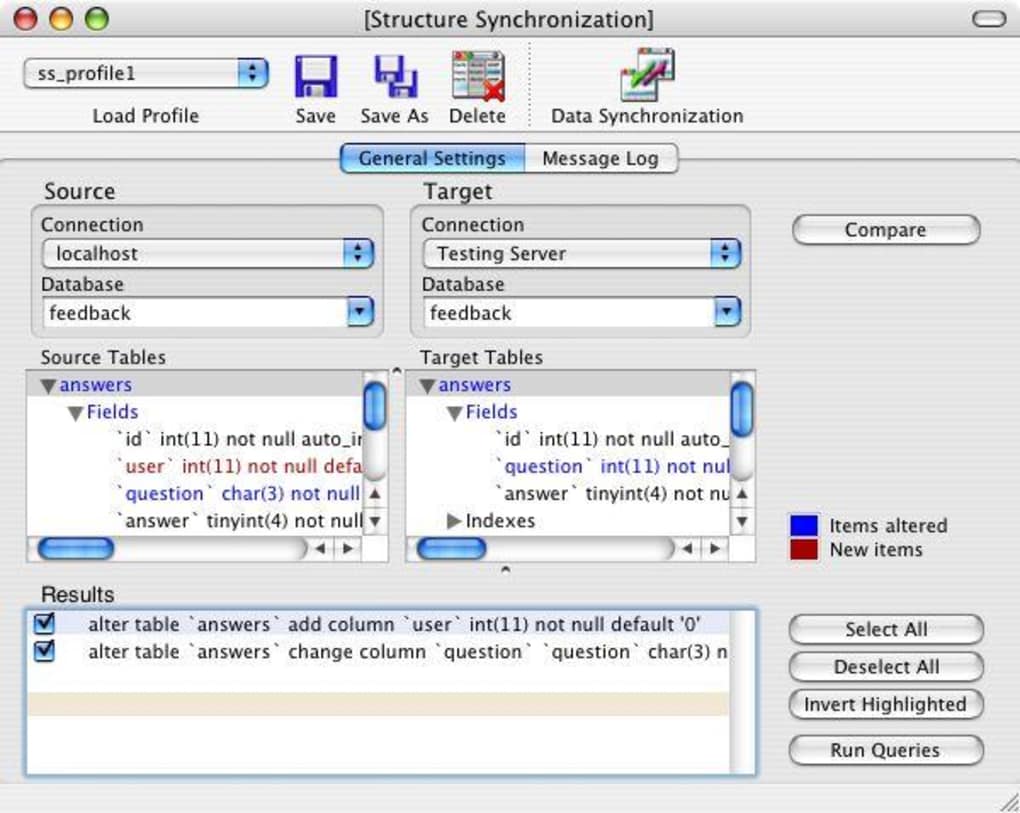

- #Navicat for mysql patch how to#
- #Navicat for mysql patch drivers#
- #Navicat for mysql patch driver#
- #Navicat for mysql patch password#
You should run mariadb-upgrade/mysql_upgrade after upgrading from one major MySQL/MariaDB release to another, such as from MySQL 5.0 to MariaDB 10.4 or MariaDB 10.4 to MariaDB 10.5. Mariadb-upgrade/mysql_upgrade is a tool that checks and updates your tables to the latest version.
#Navicat for mysql patch how to#
To learn how to work with database objects in DataGrip, see Database objects. To write and run queries, open the default query console by clicking the data source and pressing F4. (Optional) If you are connecting to a data source that contains a lot of databases and schemas, in the Schemas tab, select the schemas that you need to work with.įind your new data source in Database Explorer. To ensure that the connection to the data source is successful, click the Test Connection link.
#Navicat for mysql patch password#
In User and Password fields, specify your user credentials.
#Navicat for mysql patch driver#
Double-click the Value cell and type your server timezone (for example, UTC).įrom the Driver list, select the driver that you created earlier (see Step 4). On the Advanced tab, find the serverTimezone parameter in the list of options. For more information about creating a database connection with your driver, see Add a user driver to an existing connection.
#Navicat for mysql patch drivers#
You can specify your drivers for the data source if you do not want to download the provided drivers. The IDE does not include bundled drivers in order to have a smaller size of the installation package and to keep driver versions up-to-date for each IDE version. As you click this link, DataGrip downloads drivers that are required to interact with a database. In the Data Sources and Drivers dialog, click the Add icon ( ) and select MySQL.Ĭheck if there is a Download missing driver files link at the bottom of the data source settings area. Double-click the Value cell and type the path to your socket file (see Step 1). Scroll down to the end of the property list, double-click the cell and type junixsocket.file. On the Advanced tab, find the socketFactory property, double-click the Value cell, and change the value to .AFUNIXDatabaseSocketFactory. While pressing Ctrl, select the following files: In the file browser, navigate to a folder with third-party libraries (see Step 3). On the General tab, click the Add button ( ) and select Custom JARs. Alternatively, press Ctrl+D.Ĭhange the name of the duplicated driver (for example, MySQL socket).

In the Drivers section, click the MySQL driver and click the Duplicate button. In the Database Explorer ( View | Tool Windows | Database Explorer), click the Data Source Properties icon. You can open data source properties by using one of the following options: Junixsocket-native-common-2.3.2.jar, if you have a custom architecture try junixsocket-native-custom-2.3.2.jar You need to add the following files from the lib directory to the MySQL driver in DataGrip:

For more information about this limitation, see Connecting Using Unix Domain Sockets at .ĭownload the latest release from the junixsocket repository at (for example, junixsocket-dist-2.3.).Įxtract the downloaded archive. To enable socket connection, you need to download third-party libraries. The Connector/J driver does not natively support connections to MySQL Servers with Unix domain sockets. Type a password for your root user and press Enter. In the command line, run the following command: mysql -u root -p -S /var/run/mysqld/mysql.sock. Check the Unix socket connection from the command line

Mysql -u root -p -h 127.0.0.1 -e "select a password for your root user and press Enter.


 0 kommentar(er)
0 kommentar(er)
